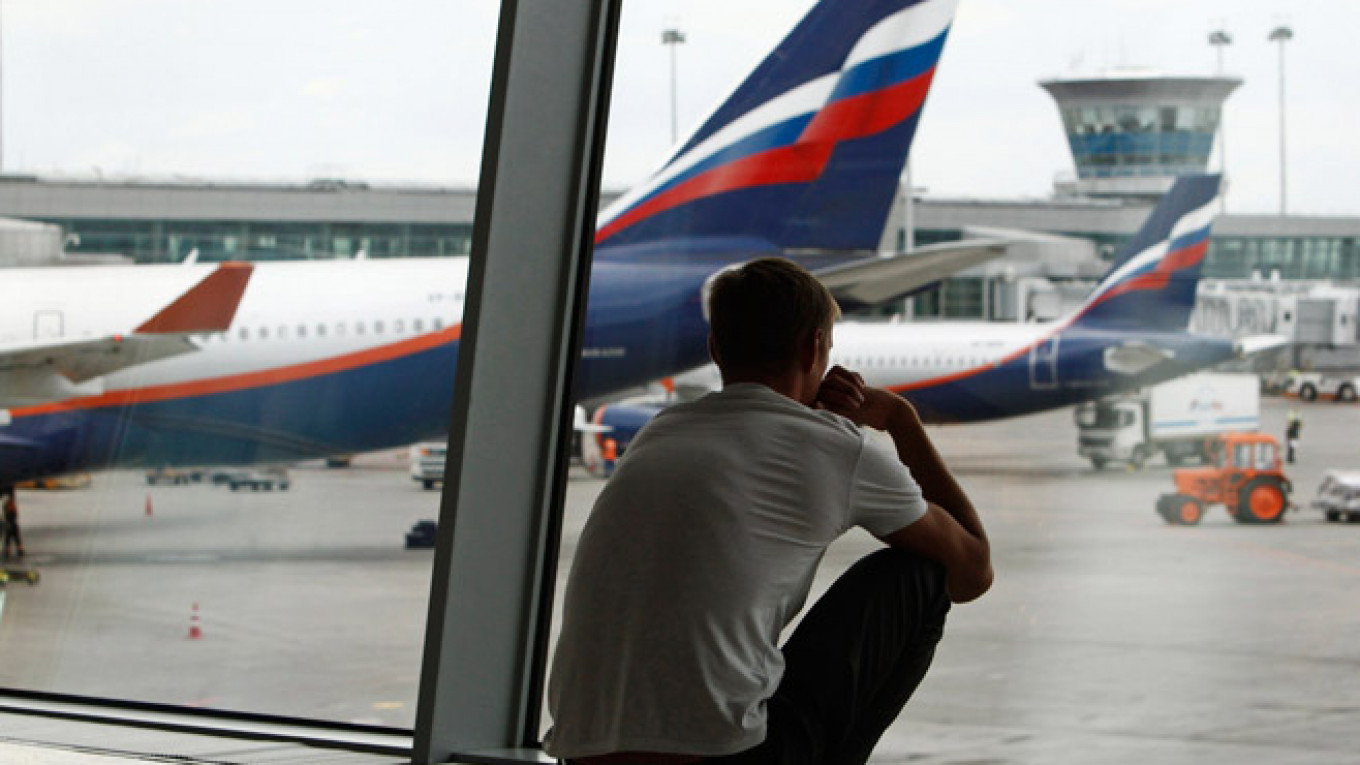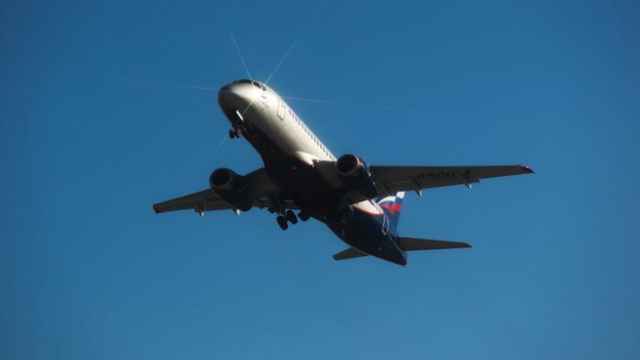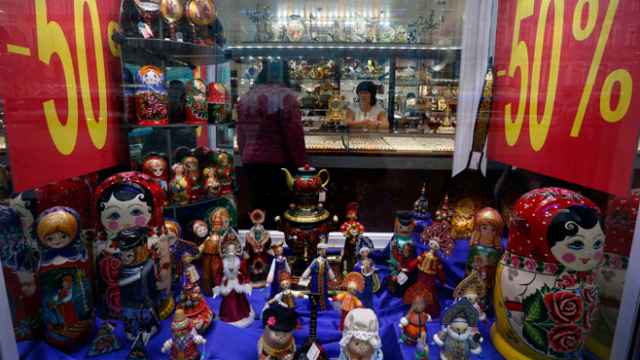Russian airlines are facing a drop in passenger numbers because of the Ukraine crisis, prompting some analysts to expect fleet reductions and possible state support next year to cope with deepening losses.
The economy is teetering on the brink of recession, the ruble has shed almost 30 percent of its value this year, and the cost of debt has risen for Russian companies as Western sanctions over Moscow's role in the conflict in Ukraine bite.
The downturn has hurt consumer sentiment, with Russians cutting back on travel, primarily on westbound, affecting Aeroflot, Transaero and UTair among others.
"We are seeing a change within airlines' flights structure which are fraught with negative consequences for their financial health," said Vladimir Tasun, president of the Association of Air Transport Operators.
Domestic operations are unprofitable because of more competition, high airport charges, fuel costs and taxes, although higher-margin foreign flights help offset some losses.
The sector lost around a net 5 billion rubles ($106 million) last year on revenue of 718 billion rubles, despite growing traffic. That loss was bearable, but 2014 is likely to be worse, as the ruble devaluation fuels carriers' dollar and euro costs while squeezing purchasing power.
According to Russia's Federal Aviation Agency, Russian airlines registered 6 percent growth in passenger numbers on international routes in January-September versus 19 percent growth a year ago, while domestic traffic growth is holding up.
Foreigners increasingly avoid traveling to Russia or prefer international carriers. Traffic on Asian routes has increased but doesn't offset European flights, one airline manager said.
Oleg Panteleyev, editor-in-chief of AviaPort.ru, expects airlines to lower prices to fill planes. That, coupled with more expensive loans and higher leasing costs, will erode profits.
"By the year-end, the industry will see big losses. I think the government will have to revert to the question of systemic support of the airlines," Panteleyev said.
That would add pressure on the government facing similar demands from various industries including oil and banks which struggle to cope with the sanctions.
"It's hard to predict if, in the weakening economy, airlines will be able to raise prices and cut costs by getting rid of surplus fleet and whether they will manage to avoid a cash gap," said Alexei Sinitsky, editor-in-chief of Air Transport Revue, adding that some carriers could end up being grounded.
State-controlled Aeroflot and Sibir, known as S7, declined to comment on their financial health. UTair said it was reducing expenses and talking to creditors.
A Message from The Moscow Times:
Dear readers,
We are facing unprecedented challenges. Russia's Prosecutor General's Office has designated The Moscow Times as an "undesirable" organization, criminalizing our work and putting our staff at risk of prosecution. This follows our earlier unjust labeling as a "foreign agent."
These actions are direct attempts to silence independent journalism in Russia. The authorities claim our work "discredits the decisions of the Russian leadership." We see things differently: we strive to provide accurate, unbiased reporting on Russia.
We, the journalists of The Moscow Times, refuse to be silenced. But to continue our work, we need your help.
Your support, no matter how small, makes a world of difference. If you can, please support us monthly starting from just $2. It's quick to set up, and every contribution makes a significant impact.
By supporting The Moscow Times, you're defending open, independent journalism in the face of repression. Thank you for standing with us.
Remind me later.






